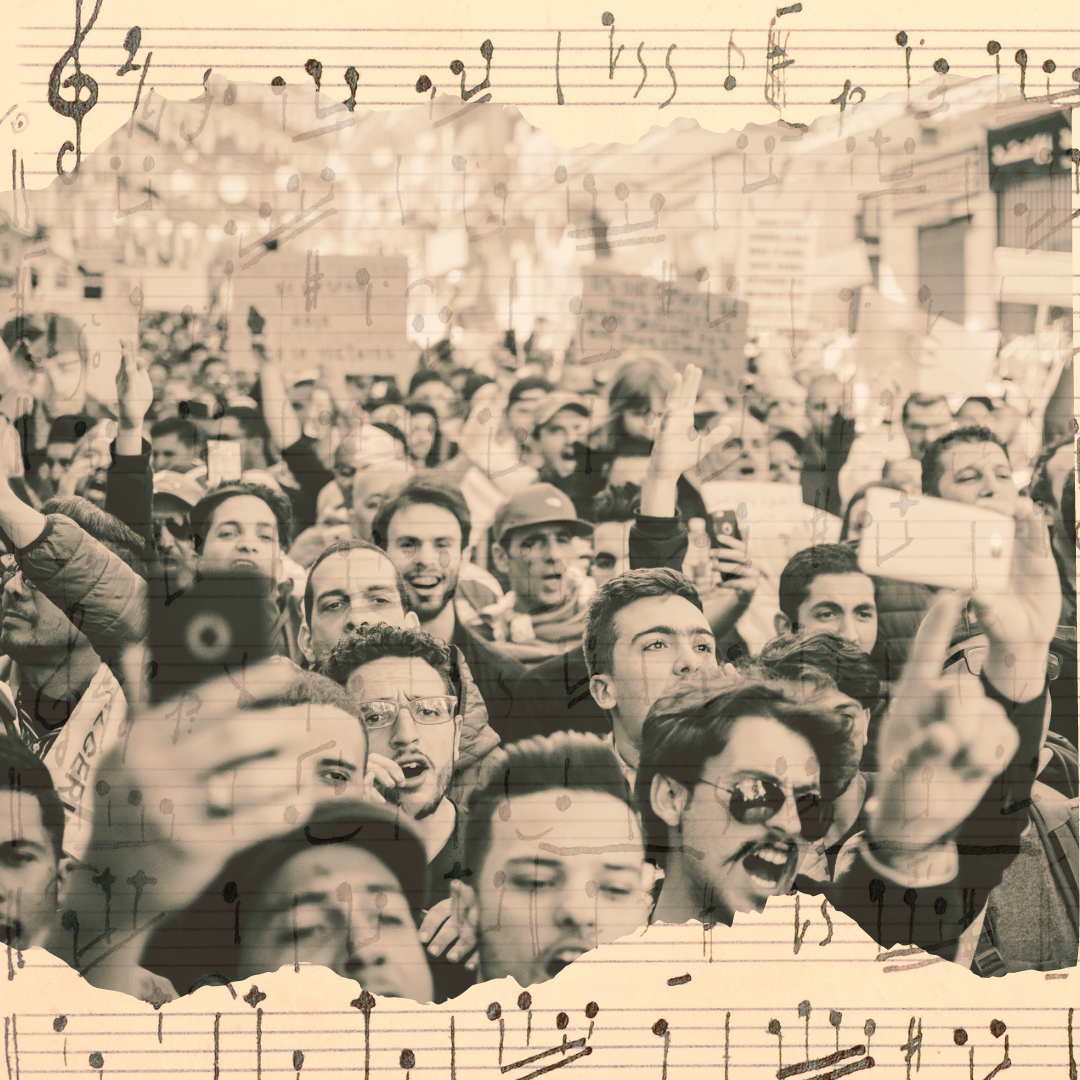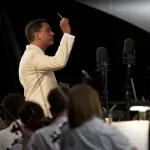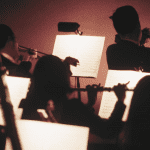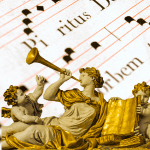Music has always had the remarkable ability to transcend boundaries and inspire change. Throughout history, melodies, harmonies, and lyrics have served as powerful catalysts for social change, igniting revolutions, inspiring movements, and challenging the status quo. Music has been uniting communities in the pursuit of justice, equality, and freedom.
From the troubadours of the Middle Ages to the digital age of today, music has played a pivotal role in shaping the world we live in. In this article, let us explore examples of how music has acted as a catalyst for social change throughout the ages, showcasing the transformative power of this universal language.
Troubadours and Minstrels: Challenging the Feudal System in the Middle Ages
Our journey begins in the Middle Ages, a time when troubadours and minstrels roamed the European countryside. These wandering musicians often accompanied by instruments like lutes and harps, spread tales of love, chivalry, but also social commentary. Through their melodies and lyrics, they gave voice to the common people, critiquing the aristocracy and highlighting the injustices of the time.
One notable example is the song “La Querelle des Investitures” which emerged during the Investiture Controversy in the 11th and 12th centuries. This conflict centered around the appointment of bishops and the power struggle between the Pope and secular rulers. Troubadours composed songs that criticized the corruption and abuses of the Catholic Church, resonating with the masses and fueling discontent. Their songs became a form of protest, challenging the established order and sowing the seeds of dissent.
The Renaissance: Music of the Reformation
As Europe transitioned into the Renaissance, music continued to be a powerful force for social change.The Reformation movement, led by Martin Luther, saw the use of music as a powerful tool to communicate religious ideas and challenge the authority of the Catholic Church. Luther’s hymn, “A Mighty Fortress Is Our God,” became an anthem for Protestant reformers, inspiring them in their quest for religious freedom and marking a significant shift in the religious landscape of Europe.
During this era, music became more accessible to the masses, and the printing press played a crucial role in disseminating musical compositions. The availability of sheet music allowed people to participate actively in religious services, and congregational singing became an integral part of Protestant worship. This democratization of music empowered individuals and fostered a sense of community, ultimately contributing to social and religious change.
The Enlightenment: The Age of Revolution
The Enlightenment era brought forth intellectual and social upheaval, and music played a pivotal role in driving social change. One iconic example is Beethoven’s Ninth Symphony. Not only was the inclusion of a chorus and vocal soloists in a symphony was unprecedented at the time, but the final movement, featuring Friedrich Schiller‘s “Ode to Joy,” became a symbol for unity, hope, and the pursuit of a better world.
In a Europe still recovering from the Napoleonic Wars and grappling with political and social unrest, Beethoven’s symphony represented hope for a peaceful and united continent. The power of music to inspire and unite people in the pursuit of a better world was exemplified in this monumental composition.
It is no surprise then, that today it is chosen as the anthem of the European Union, It is played at official ceremonies attended by the representatives and/or leaders of the European Union, and more generally at many events with a European theme.
The 20th Century: Folk, Protest, and Civil Rights
The 20th century witnessed a proliferation of music-driven social movements that sought to challenge injustice and promote equality. Folk artists like Woody Guthrie and Bob Dylan used their music as a platform to address labor issues, civil rights, and anti-war sentiments. Their songs served as anthems for movements and became rallying cries for change.
Woody Guthrie’s iconic song, “This Land Is Your Land,” was a symbol of unity and inclusivity. Another example is Bob Dylan’s “The Times They Are A-Changin’,” released in 1964. This iconic song became an anthem for the civil rights movement, resonating with those fighting for racial equality and social justice. Its lyrics, urging people to embrace change and stand up against injustice, struck a chord with individuals across the nation and became a rallying cry for a generation.
The 1960s: Rock ‘n’ Roll and Counterculture
The 1960s marked a period of significant social and cultural change, and music played a central role in the counterculture movement. Rock ‘n’ roll became the soundtrack of resistance, with bands like The Beatles and The Rolling Stones using their music to express anti-establishment sentiments. The Woodstock Festival in 1969 became a symbol of peace, love, and the rejection of societal norms.
The music of this era became a powerful tool for social change, challenging traditional values and advocating for individual freedom. Songs like The Beatles’ “Revolution” and The Rolling Stones’ “Street Fighting Man” captured the spirit of rebellion and inspired a generation to question authority and push for societal transformation.
The Arab Spring: Music as a Tool for Protest
Moving into the 21st century, we witness the enduring power of music in igniting social revolutions. The Arab Spring, a series of pro-democracy uprisings that swept across the Middle East and North Africa in 2010 and 2011, showcased the transformative role of music in inspiring change. In countries like Egypt, iconic songs like “Irhal” (Leave) by Ramy Essam became anthems for protestors demanding political reform and an end to authoritarian rule.
Music became a unifying force, providing a common language that transcended borders and cultures. Artists used their songs to express the frustrations and aspirations of the people, amplifying their voices and giving them a sense of empowerment. These songs became rallying cries for change, fostering a sense of solidarity among protestors and inspiring others to join the movement.
The Digital Age: Music’s Impact in a Connected World
In today’s digital age, music’s impact on social revolutions has evolved with the advent of social media platforms and streaming services. Artists now have the ability to reach global audiences instantaneously, amplifying their message and connecting with individuals who share their vision for a better world. Movements like #BlackLivesMatter have harnessed the power of music as a means of spreading their message and mobilizing supporters.
Music in the digital age also allows for greater collaboration and cultural exchange. Artists from different backgrounds and genres can come together to create music that transcends boundaries, challenging societal norms and promoting cultural diversity. This collaborative spirit fosters a sense of unity and understanding, breaking down barriers and promoting social change on a global scale.
One example of music’s power to address social issues and spark important conversations is Childish Gambino’s “This Is America,” (2018), The song and its accompanying music video confront themes of racism, violence, and social injustice in America, sparking essential conversations and creating a call to action. Its thought-provoking lyrics and powerful visuals shed light on the realities faced by marginalized communities, encouraging individuals to examine their own role in effecting change.
Conclusion: The Enduring Power of Music
Music has always been a force for social change, inspiring individuals and communities to challenge the status quo and strive for a better world. From the troubadours of the Middle Ages to the digital age of today, music has acted as a catalyst for revolution, giving voice to the voiceless, and uniting individuals in the pursuit of justice, equality, and freedom.
Through the centuries, melodies, harmonies, and lyrics have resonated with people’s deepest emotions, sparking conversations, and driving movements for social change. Whether it be challenging feudal systems, advocating for religious freedom, or fighting for civil rights, music has played a pivotal role in shaping the course of history.
As we embrace the power of music, let us remember that it has the ability to transcend borders, bridge divides, and inspire empathy and understanding. It is a universal language that speaks to the core of our humanity, fostering connections and empowering individuals to create a more just and equitable world.
So, let us continue to listen, create, and be moved by the music that has ignited social revolutions throughout history, and let it inspire us to be catalysts for change in our own time. Together, we can harness the power of music to build a brighter and more inclusive future for all!







0 Comments